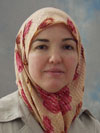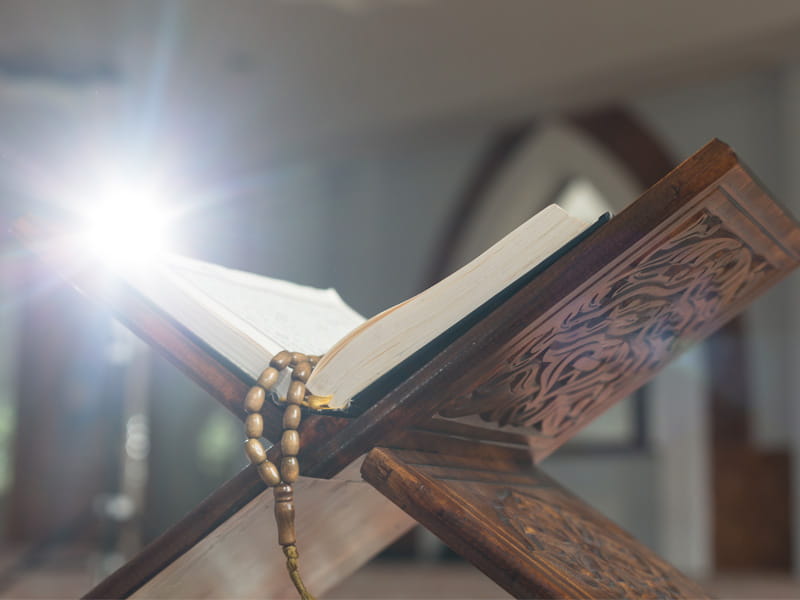 When the Islamic Society of Northern American (ISNA) elected Ingrid Mattson, the director of the Islamic chaplaincy program at the Hartford Seminary and vice president of ISNA, as its president last week, Muslims and non-Muslims took note. Mattson is the first female to head the organization, which is the largest, most inclusive Muslim group in North America, with a sizeable political and social reach.
When the Islamic Society of Northern American (ISNA) elected Ingrid Mattson, the director of the Islamic chaplaincy program at the Hartford Seminary and vice president of ISNA, as its president last week, Muslims and non-Muslims took note. Mattson is the first female to head the organization, which is the largest, most inclusive Muslim group in North America, with a sizeable political and social reach.Mattson takes ISNA’s helm at a challenging time when American Muslims are struggling to promote their religion, encourage interfaith dialogue, create standards for their community, and separate themselves from the views of extremists. Mattson spoke with Beliefnet’s Islam editor Dilshad D. Ali about her goals for ISNA, why women’s rights isn’t her primary platform, and the new obligation American Muslims have in the fight against terrorism.
What does your election mean for the women in Muslim leadership roles? Does it have an impact on religious or spiritual leadership as well?
Certainly, it’s both things. First of all, women have been involved on the board of ISNA for many years. In fact, women were founding members of the Muslim Students Association--MSA national--more than 40 years ago. The presidency is looked at by many people as a form of religious leadership. And to that extent I do believe it’s a significant step for the Muslim community to choose a woman as a leader of this organization.
ISNA Secretary-General Sayyid Saeed was quick to say that you will lead “ritual worship” for women–and not lead prayer. What does that mean?
It means salat, the five daily prayers and the Jumaa (Friday) prayer--the congregational prayer. It doesn’t mean invocations or supplications or du’a, which are all other forms of prayer.
So you’ll lead prayer for women, but not for mixed gender groups?
That’s correct, and that’s what I’ve always done.
A lot of women are seeing this election as a victory for Muslim feminism. What does the term “Muslim feminism” mean to you?
Feminism--the idea that women have rights, that women and men should exert themselves to ensure that women have a meaningful way to achieve their rights--is a good concept. But it shouldn’t be a defining worldview. My agenda is not a narrow one of only looking at the interests of women. I’m looking at the interests of our whole community. We live in a world where we have to be concerned if anyone is suffering injustice. Muslim women shouldn’t be parochial in the sense of only being concerned about women’s issues.
One of the popular misconceptions about Islam is that women are seen as lesser figures, that they don’t have rights.
This perception that women in Islam are oppressed is based both on misinformation as well as am amplification of certain unfortunate tendencies in some parts of the Muslim world. It’s true that people have seen some Muslim authorities using Islam as a justification for the oppression or suppression of women. That’s a reality, we can’t deny it. But we have to balance those incidents with what’s going on in the rest of the Muslim world, in which most women are participating in their societies. We’ve seen that within recent times four Muslim-majority nations have had female heads of state. In most countries that I’ve traveled to, Muslim women are involved in all aspects of society.
Some conservative pundits see ISNA as a shield for shady practices, and as an organization that harbors radical thinking. What would you say to these critics?
I would say they have to support their views with evidence and not simply resort to vague conspiracy theories or general, unsubstantiated accusations. We are what we do. We’re an umbrella organization that’s inclusive of Sunni, Shi’a, and Sufi and provides a broad and open platform for all North American Muslims. And our goal is to bring the diversity of the Muslim community together so that we can get to know each other as the Qur’an compels us to. We want to offer the Muslim community the opportunity to know the greater American society, especially faith groups--to come to understand our Christian and Jewish neighbors and others and find ways that we can come together to do something good for this society.
What are your goals for ISNA? Where do you want to take the organization?
My major concern is institution-building and to emphasize the need for standards in our community. There is no ordination in Islam, no hierarchical church that determines what all communities should do. We don’t want to be that, but at the same time we can help the community develop some standards for religious leaders and our religious community. We can raise the level of professionalism in our communities and harness the energy and goodwill that is in our congregation.
Unfortunately, many of our communities are not functioning in a really dynamic and vital fashion. So we need to implement more training, provide educational opportunities for those running these institutions, and give models of successful communities that engage both their congregants and the broader community.
What I’m speaking about are skills of the religious leaders themselves. For example, our imams, our chaplains, and community leaders are called upon to mediate domestic disputes. Do these religious leaders have the qualifications and the knowledge to provide this advice and counseling? What about public speaking? Do they have the skills to engage the congregation? What about the Islamic centers themselves? Do they know how to organize adult-education programs that are engaging, interesting, relevant, and informative? This is what I’m talking about, not forming legal opinions.
You wrote an essay for Beliefnet after 9/11 about American Muslims having a special obligation to condemn violence committed by Muslims in the name of Islam. Five years later, have they lived up to that obligation?
I do believe that American Muslim communities have been good in this respect--have worked hard to write their opinions about terrorism, about extremism, about violence committed in the name of Islam. Unfortunately, those positions are not being heard by the general American public. Many Muslims engaging in public speaking find themselves in the frustrating position of being asked why Muslims do not condemn terrorism. Sometimes people are not hearing the message despite our best efforts.
That can be frustrating. I want to also make sure people understand that although American Muslims do have a responsibility to clarify their views on terrorism and violence done in the name of Islam, we don’t have control over these situations. We don’t have some sort of magic power over all Muslims in the world.
And at the same time it’s important that people understand that a justification for an action is not the same as the motivation or cause for an action. What I mean by that is that there may be Muslims around the world who claim that the actions they are taking are justified in Islam. But if we analyze the political context of that situation, we will see that in fact the cause of their actions is not a religious motivation, but it is a political reason. Because Islam is the dominant, normative discourse in their society, they will call upon Islam as a justification for their actions.
Have American Muslims successfully found ways to fight terrorism and also oppose the oppression of Muslims around the world?
I think we’re in a very difficult position in our time. Unfortunately, there are many groups that continue to try to use current conflicts to further political agendas that have nothing to do with fighting or preventing terrorism. And some of these groups are opposed to Islam and Muslims—ideologically and politically and are making it very difficult for Muslims to separate true Islam from extremism. These groups are encouraging the use of terms like “Islamic fascism” that simply confuse the issue further. So there’s still a lot of work that needs to be done.
Many Muslims in this country say they have repeatedly denounced acts of violence, and that they’re working with FBI and government officials and doing dialogues to get their point across. Why aren’t they being heard?
Because the actions of American Muslims are not being televised. What’s being televised are bombings from Iraq and kidnappings from Gaza and so on. We live in a time in which what is shown on TV is thought to be reality. Not many people read alternative publications or even mainstream newspapers anymore. So although we may be doing all of these good actions, and some of them may be publicized here and there, it’s not brought to the attention of the mainstream American audience. That’s just the reality of media and the dissemination of information in our time.
What’s the next obligation for the American Muslim community?
We have to keep exemplifying the right way of living as Muslims. We should be working with international organizations that monitor human rights in all places, including those places where our own government is suspected of violating human rights. We should be as diligent in doing our duty as citizens of our country in making sure that our government does not violate its values and laws and international law.
It’s a difficult time that we live in, but we need to recommit to universal human rights, to true engagement and realize that there are lots of great people out there working for peace and justice. We need to publicize those efforts so that we can get some hope to our youth.
A few weeks ago, I was working with an American Jewish lawyer who took a case of a Muslim inmate who was being denied his religious rights. And to me, working as a partner with this lawyer on this case was really encouraging and reminded me of how much good there is in this country. We need to continue reaching out to those people from every segment of American society who are interested in furthering the dignity of human beings and the stewardship of this earth. This is our work. That’s the only way we can go forward into the future.

